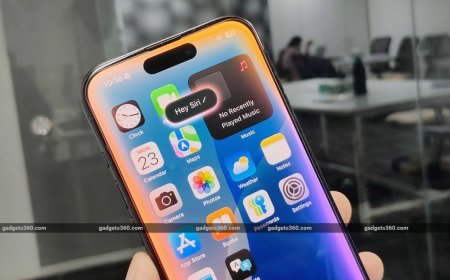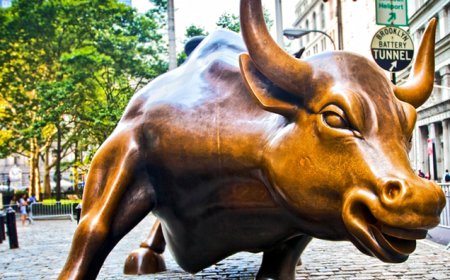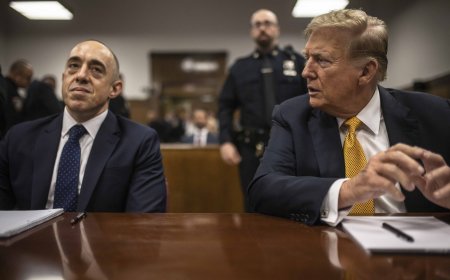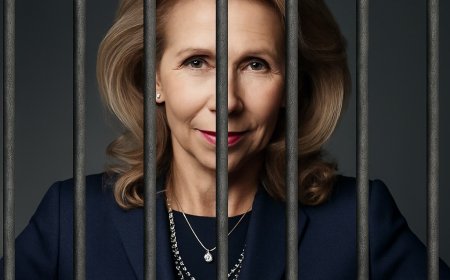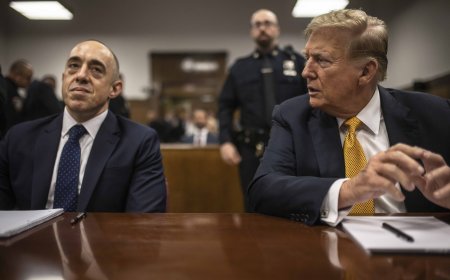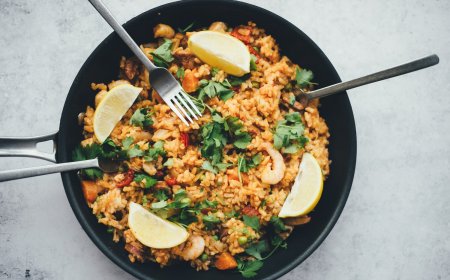Nominating Emil Bove for Appellate Court is Brazen, Even for Trump
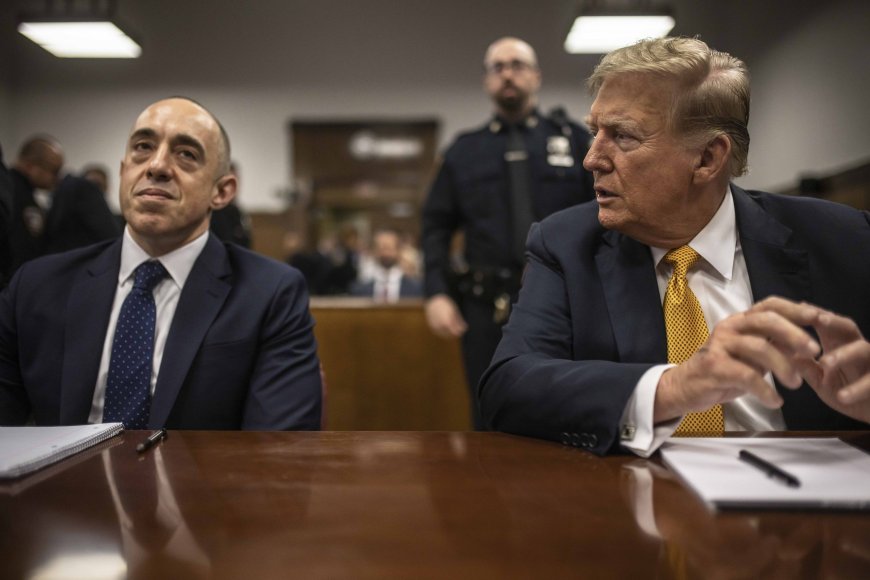

Washington, D.C. — In a move that has stunned both legal experts and political observers, former President Donald Trump has nominated Emil Bove, his longtime criminal defense attorney and current top official at the Department of Justice, to the United States Court of Appeals for the Third Circuit. If confirmed, Bove, 44, would secure a lifetime appointment to one of the nation’s most influential appellate courts — one that has historically shaped the judiciary, including producing Supreme Court Justice Samuel Alito.
The nomination is already drawing fire from across the political spectrum, with critics accusing Trump of trying to stack the courts with loyalists rather than qualified jurists. Bove has never served as a judge and is not recognized as a seasoned appellate litigator, raising alarm over his qualifications and judicial temperament.
A Loyalist's Rise
Bove is best known to the public as one of the lawyers who defended Trump during a barrage of federal and state indictments in the aftermath of the 2020 election and the events of January 6, 2021. He joined Trump’s personal legal team after leaving private practice in New Jersey and now holds a powerful role at the Justice Department, where his combative and unapologetically partisan style has earned him both admiration and scorn.
“Emil is SMART, TOUGH, and respected by everyone,” Trump wrote on Truth Social. “He will end the Weaponization of Justice, restore the Rule of Law, and do anything else that is necessary to, MAKE AMERICA GREAT AGAIN. Emil Bove will never let you down!”
Such praise underscores Trump’s preference for ideological and personal loyalty over traditional judicial credentials — a posture that has deepened his rift with the Federalist Society and its co-chair, Leonard Leo, once key allies in Trump’s judicial nominations.
The Fallout of a Controversial Career
Bove’s record at the Justice Department reads like a checklist of hardline, partisan maneuvers. He oversaw a purge of senior FBI officials, including career professionals involved in investigations related to the January 6 insurrection. He also ordered federal prosecutors nationwide to investigate — and potentially charge — state and local officials who resisted Trump’s mass deportation orders.
Perhaps most controversially, Bove intervened in the federal corruption case against New York City Mayor Eric Adams, ultimately ordering its dismissal despite protests from the Department's Public Integrity Section. Multiple veteran prosecutors resigned in response, including Danielle Sassoon, a former law clerk to Justice Antonin Scalia and the acting U.S. Attorney for the Southern District of New York.
Bove reportedly told colleagues the case had to be dropped because it interfered with the mayor's cooperation with Trump’s immigration enforcement agenda. He personally appeared before a federal judge in New York to justify the decision, which he admitted was driven by political considerations rather than legal deficiencies.
A Litmus Test for Judicial Independence
Now, Bove’s nomination is shaping up to be a high-stakes confirmation battle. With two vacancies on the Third Circuit — one in Delaware and one in Pennsylvania — it remains unclear which seat Bove is being considered for. He owns property in Pennsylvania, but Senate Judiciary Democrats are unlikely to let that technicality distract from what they see as a fundamental threat to judicial independence.
“Bove has not demonstrated the independence or temperament expected of a federal judge,” said Sen. Sheldon Whitehouse (D-RI), a senior member of the Judiciary Committee. “His record shows someone more comfortable issuing political threats than legal opinions.”
Even some conservatives are wary. “We’ve always supported judicial nominees with originalist principles, not partisan operatives,” said a senior aide to a Republican senator who requested anonymity. “This nomination feels like a loyalty test, not a merit-based appointment.”
A Future Supreme Court Justice?
Trump insiders hint that Bove’s appointment to the appellate bench could be a stepping stone to the Supreme Court should another vacancy arise during a potential second Trump presidency. Given the former president’s well-documented dissatisfaction with Federalist Society-approved justices who have occasionally ruled against his interests, Bove’s nomination signals a shift toward appointing judges with unshakable loyalty rather than judicial restraint.
Such concerns echo Trump’s 2016 campaign pledge to nominate Supreme Court justices who would “automatically” overturn Roe v. Wade — a promise he fulfilled. Now, Bove’s declaration that he would “do whatever is necessary” to advance the Trump agenda has alarmed watchdog groups and judicial ethics advocates.
“This is not how our judiciary was designed to function,” said Leah Litman, a constitutional law professor at the University of Michigan. “Judges are supposed to interpret the law, not enforce the political will of a former or future president.”
A Fraught Confirmation Fight Ahead
Bove’s nomination comes at a time when public trust in the federal judiciary is at a historic low, and his confirmation hearings promise to be explosive. Senate Democrats are expected to question him on his role in dismissing the Adams case, his lack of judicial experience, and his involvement in the forced deportation of Venezuelan migrants — an operation that defied a direct federal court order and drew international condemnation.
Despite the uproar, Bove’s supporters insist that his prosecutorial background — including a nine-year tenure in the Southern District of New York’s terrorism and narcotics unit — makes him more than qualified for the bench.
Yet even in that capacity, Bove’s management style came under scrutiny. Internal investigations suggested he exhibited an abusive temperament toward staff, leading to the threat of demotion before he exited public service for private practice.
The Bigger Picture
Trump’s nomination of Bove reveals more than just a personnel decision — it marks a fundamental shift in how judicial power may be wielded in the post-Trump era. No longer confined to traditional conservative legal circles, Trump’s allies are now choosing loyal enforcers with a record of ideological conformity and aggressive partisanship.
As Otto von Bismarck once said, “Politics is the art of the possible.” For Trump, it’s also the art of control. With Bove, he may have found not a judge, but a soldier.




